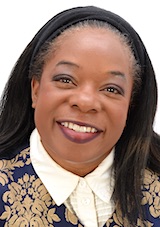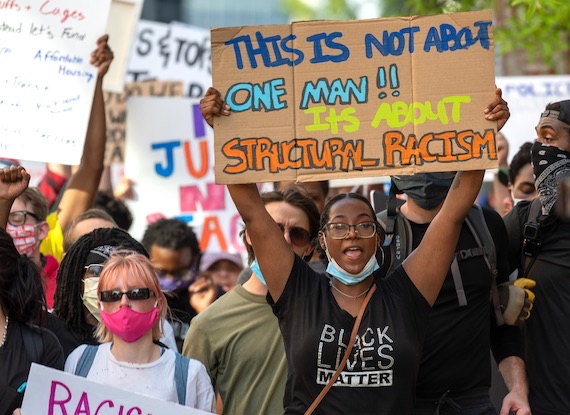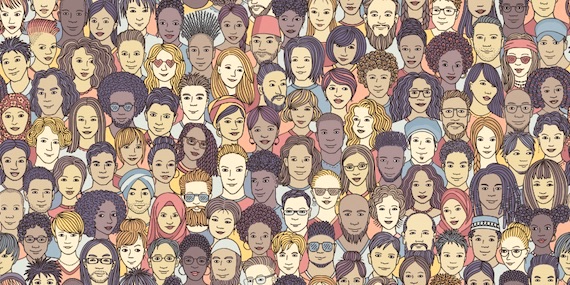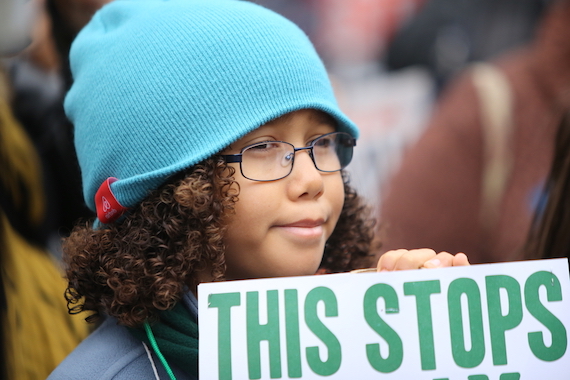5 Steps Toward Cultural Competence in Schools
Five things culturally competent teachers and school leaders do differently
Like so many times before, the slow burn of racial injustice erupted in a blaze of protests – illuminating long-standing social, economic, and educational disparities and divisions. Only this time was different.
This time, as George Floyd pleaded to breathe, the world held its collective breath too. Wrenching in pain with his face buried into the asphalt by a policeman’s knee, we anxiously watched his life slip away, hoping the outcome would be different.
The haunting memory of his final pleas pierced our collective conscience. They could not be shaken, ignored or forgotten. This time streets around the globe rocked with the voices of protest, demanding accountability and change. This time the nation mourned the loss of justice and convulsed with the recognition of our complicity in its demise.
When the embers of protests subsided, racism in all of its ugliness lay bare; exposed; inspiring a global awakening.
The students of color in our schools
For far too many students of color, their awakening began at birth. From their earliest years Black and Brown students psychologically wrench in pain and gasp for air – suffocating from the weight of oppression.
This time I hope educators hear their students’ stifled pleas before their lives, their futures, their dreams slip away. In the 21st century, there are precious few problems more urgent or essential than eliminating racism in schools, instituting equity in all school practices, and fostering a more culturally competent and responsive school workforce.
What it means to be culturally competent
What does a culturally competent educator do differently? Cultural competency is a progressive state of professionalism in which one:
► Becomes cognizant of how racial bias and inequity have been embedded in our culture and how our cultural values and beliefs influence professional practices;
► Adapts professional practices to create more equitable student outcomes;
► Dismantles inequitable policies and practices that limit access and opportunity, and
► Relinquishes their privileges in exchange for championing equity and disrupting injustice.
To achieve these goals, culturally competent educators exhibit several skills, funds of knowledge, and dispositions that set them uniquely apart. Let’s discuss five fundamental things.
1. We Create a Caring Community for All
First, culturally competent educators make creating a caring community a priority – not just for some but for all. While kindness and care, as vital as they are to our overall well-being, may not of themselves dismantle inequity or foster cultural competency, they do create the context for meaningful conversations and nurture an environment where active change can occur.
Culturally competent educators intentionally foster an environment where rich and honest discussions can occur. They understand it is difficult to have the kind of honest and transparent conversations needed for professional growth toward antiracism if you are working within an environment where your colleagues and parents are distrustful or feel threatened.
2. We Grow in Our Understanding of Racism
Second, culturally competent educators build their background knowledge on structural and institutional racism. They read the perspectives of Black and Brown authors on current, historical, and life events and experiences and emerge with a broader perspective.
They know the truth of our history of racism and are unafraid to discuss it. They recognize the roots of inequity and are unafraid to dismantle them. Resources on systemic racism are not hard to find. They may be digitally downloaded from the public library, or accessed through your local public television stations or educational websites.
The websites of organizations such as ASCD, PDK International, or mhy own site Leadervation Learning offer ready lists and links to digital resources on educational equity.
3. We Set Goals: What Gets Measured . . .
The third thing culturally competent educators do differently is set goals on understanding culture, bias, racism and privilege and disrupting inequitable practices. Whoever said “What gets measured, gets done” understood human nature. As humans we like to know where we are beginning, where we are going, and what we can expect along the way – preferably disclosed well before we start anything of significance.
Measurement tools such as The Cultural Competency Continuum provide a clear starting point for assessing your performance on specific behaviors, skills and dispositions that demonstrate cultural competency and focusing on areas of growth.
► According to this tool, step one is building your cultural competency, Awaken and Assess, builds your knowledge and skills toward examining your beliefs and values and how they manifest in your behaviors. There is also a great deal of knowledge-building on the historical formation and application of racism and White privilege in our culture.
► During step two, Apply and Act, you adapt your professional practices having interrogated your personal beliefs, biases, and values.
► In step three, Analyze and Align, focuses on institutionalizing equity practices in the classroom or school by dismantling inequitable policies and aligning resources to support necessary changes.
► In step four, Advocate and Lead, you learn the skills, knowledge, and dispositions needed for your role as an equity leader and advocate. Utilizing this continuum, one can assess which skills they need to develop, which areas of knowledge require expansion, and which dispositions should be nurtured to grow in cultural competency.
4. We Collaborate to Spread What We Know
Culturally competent educators encourage and collaborate with others in their learning of racism, privilege, bias and culture. They understand there are few things more powerful than a determined community of learners supporting each other to grow professionally.
They leverage learning as a social process by processing their thinking, discussing ideas, and debriefing their understandings with thought partners and critical friends. They enjoy the intellectual volley of critical dialogue and welcome personal feedback.
5. We Are Patient and Comfortable in Our Vulnerability
Culturally competent educators have learned to be patient with themselves and are comfortable being vulnerable with others. While discussing issues of race or privilege may be initially uncomfortable, they understand avoiding these discussions may perpetuate educational injustices for students of color. They have learned to embrace the process, get comfortable with vulnerability, and bravely continue to move forward in creating a more equitable and just school and society. Their students deserve no less.
Why Cultural Competency Is So Urgent
Every student deserves a culturally competent educator. Our cultural histories, narratives, beliefs, values, practices, policies, and legislative actions have been historically construed to favor people with white skin while placing most others at a stark disadvantage.
This ideology is embedded throughout our society and manifests in behaviors that allow people with darker skin to be discriminately marginalized, negated, denigrated, ignored, or criminalized in systems. In recent years it has been increasingly documented through cell phone footage, films, and documentaries. But there is also sufficient evidence of its ideology in schools through the documentation of disparate educational outcomes for students of color.
If every educator demonstrated cultural competence, we could make tremendous strides in our ability to create a more equitable educational system – a system that has for too long been largely unapologetic in terms of refusing to examine its own biases in practices and policies that perpetuate inequity.
The world has awakened to a broader perspective on systemic racism this year and the resolve to dismantle or disrupt practices that support it was demonstrated by organizations across the globe. Let’s hope in this upcoming school year that schools and educators will make and follow through on similar commitments and determined actions.
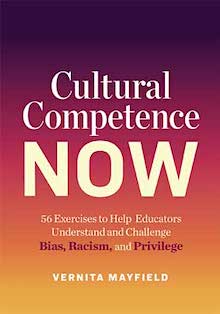
Dr. Mayfield holds a PhD in educational leadership, an EdS in educational administration, and an MBA in business administration. Her ASCD book Cultural Competence Now: 56 Exercises to Help Educators Understand and Challenge Bias, Racism, and Privilege offers strategies and tools to help school leaders explore urgent and uncomfortable issues of race, bias, and privilege with their teachers throughout the school year. Visit her consulting website Leadervation Learning to learn more.

